Iranian-Armenian Christians Detained On Visit

Elisa Shahvardian, an Armenian Christian, has been detained along with her husband during a visit to her family.

Elisa Shahvardian, an Armenian Christian, has been detained along with her husband during a visit to her family.
The couple were apprehended by Iran's Ministry of Intelligence agents on August 24, taken from a friend's residence in Tehran, and transported to Evin prison.
Elisa was eventually released on bail. Her husband, Hakop Gochumyan, remains detained in Evin, exceeding four months since their initial arrest during their visit to Iran with their two children.
The family had personal belongings confiscated including Christian books. While the children were entrusted to an aunt, Elisa and her husband faced prolonged interrogations in solitary confinement.
Despite their tribulations, neither Elisa nor Hakop received official charges, a clear violation of international human rights standards.
Elisa, accused of participating in "illegal Christian activities," steadfastly refuted in a post on X any wrongdoing during their visit to Iran. Christianity, Judaism and Islam are legal in Iran where minorities such as Bahai are not.
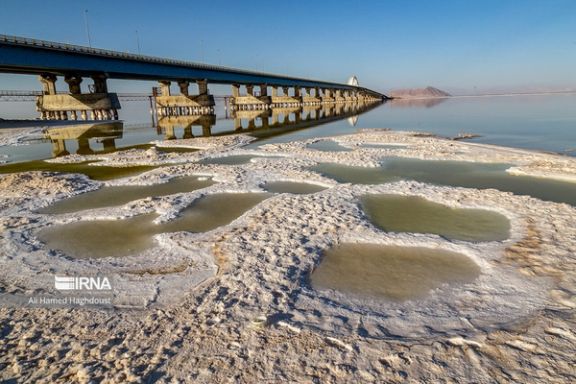
Videos have shown trucks around Lake Urmia allegedly carrying titanium, sparking fears its mining may be destroying the Middle East's once largest lake.
Iran Briefing, a group of investigative journalists, have speculated that authorities have been mining titanium, present in the northwestern lake, which could explain why the once thriving salt-lake has dried up.
Although there has been no official response to these claims, the Urmia region in West Azarbaijan province does possess a titanium mine and magnesium recovered from lake brine can be used to refine it.
A 500 million Euro Titanium mining project was announced in a village near Lake Urmia, approximately ten miles to its west, in January.
The reformist Etemad newspaper published satellite images of Lake Urmia in November and reported that in the past year, “80% of the lake's water has dried up”, which “equates to the death of the sixth-largest saltwater lake globally."
Some experts have ruled out the possibility of reviving the lake which has been illegally salt mined for years, with rumors last year of lithium mining. “It is not in the government's interest, will, or power to revive Lake Urmia,” Roozbeh Eskandari, a hydraulic structures and dam construction expert, told Iran International.
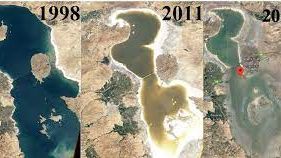
Nikahang Kowsar, an environmental analyst, blames the IRGC, calling it "an environmental menace willing to destroy Iran’s water resources just to line its own pockets,” citing the building of dams "to finance the Quds Force budget,” Nikahang Kowsar told Iran International last month, branding the IRGC "Iran's water mafia".
“This is how the cost of building a dam like Gotvand [south of Iran] can increase from $1.5 billion to $3.3 billion, and nobody even dares to ask where all the money has gone when the contractor did such a poor job,” wrote the analyst in an article for Middle East Institute.
In 2020, the US said that any sales to Iran of titanium, among other metals including chromium, nickel and 60% tungsten, were sanctionable as they are useful to Iran's nuclear, missile, and military programs.
Ali Salajegheh, the head of the Iranian Environmental Protection Organization, on Thursday neither denied nor approved the mining claims but said, "They need to be investigated."
Meanwhile, the hardliner Fars News Agency, affiliated with the IRGC, quoted an academic as saying the “rumors” are not true.
Behzad Hessari, a professor at Urmia University and the director of the environment department of Urmia Lake Research Institute, told Fars: “Methane gas is high in regions like the frozen forests of Siberia. Due to climate change, the ice is melting and the stored methane gas is released. This is not true for Lake Urmia.”
The lake's shrinking, a UNESCO Biosphere Reserve, risks both ecological and human implications. Once home to an array of wildlife, its decline increases the dust from the exposed lake bed reducing air quality, risking increased cases of respiratory illness among the local population.
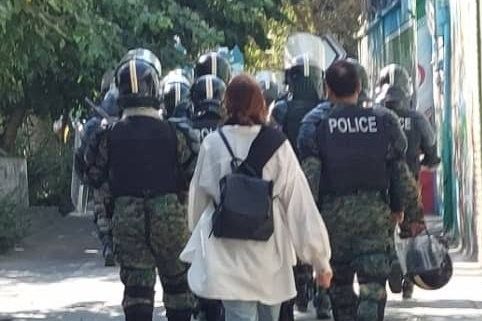
An Iranian lawmaker says the “Chastity and Hijab” bill will extend to government officials not supporting the crackdown on hijab refusers.
“Our main and most serious argument in this bill is to tackle professional hijab criminals”, Mehdi Baqeri, a member of the Judiciary Commission of the Iranian Parliament, told Rouydad24 news website.
He blamed governmental institutions in Iran for not meeting their obligations with regard to the implementation of compulsory hijab laws, adding that in case of the final ratification of the “Chastity and Hijab” bill, the officials negligent on their hijab duties will face legal measures.
According to the lawmaker, the bill will criminalize the government officials’ “shortcomings and inefficiencies” regarding hijab enforcement and they can even be fired from their jobs.
We have companies in Iran that promote “the culture of nudity” by producing “unconventional” and “vulgar” clothes, and there are people who sell these items, Bagheri added, urging the “severe and harsh” punishment of both groups.
In September, the Iranian parliament green lit a bill titled “Protection of Family Through Promotion of Hijab and Chastity Culture.” Initially introduced by the government and subsequently amended by parliamentary hardliners, the legislation outlined penalties, including substantial fines, for women diverging from the prescribed Islamic dress code.
Unexpectedly, the constitutionally mandated 12-member Guardian Council, wielding ultimate authority over legislation, rejected the bill. The Council cited formal deficiencies, including the ambiguity of specific terms in the text, prompting a call for parliamentary revisions.
While some speculate that the rejection stems from formal issues, others posit that the Guardian Council may be cautious about potential increased public discontent before the upcoming parliamentary elections in March.
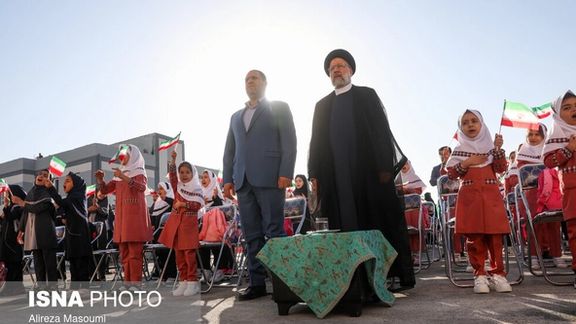
School teachers have claimed regime reforms have turned the country's schools into “religious and military bases”.
In an interview with Khabar online on Monday, teachers expressed concern about the plans to "shift schools away from their primary function", resulting in a "dead end" for children.
Teacher Mohammadreza Niknejad told Khabar Online that “authorities have failed in the education sector” as students do not accept today's school teachings. Furthermore, he added that ideological and religious studies have taken over most of the content of the school curriculum, even science, causing students to lose interest in the subject.
In line with the government's propaganda policies and the order of Supreme Leader Ali Khamenei the content of textbooks has changed in the last few years. In November, Reza Morad Sahraei, the Minister of Education, insisted on the need for gender-specific school curricula and confirmed changes in textbooks.
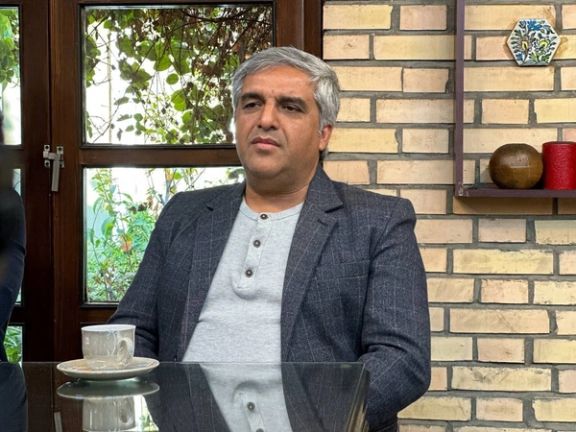
Sahraei also stressed the Islamic Republic's rejection of both the "Eastern perspective" and the feminist perspective, deeming the latter to be "deviant." A second teacher, Narges Malekzadeh, also noted the role students played in last year's protests and warned of future demonstrations: "If we do not maintain communication with students, they may become frustrated and protests may happen again."
Teachers staged a mass demonstration since the government did not take any tangible measures to identify and pursue the perpetrators, or to explain what was happening to their terrified parents and students. According to Amnesty International's report in April, since November 2022, thousands of schoolgirls have been poisoned and hospitalized in Iran. A trend that also continued at the beginning of this academic year.
In response to teachers' and students' protests, the government introduced a program of mass dismissals at schools known as the 'purge'. A tightening of security was also implemented around teacher recruitment. There is now a six-month selection period for teachers in non-government schools, in addition to the standard 15 days.
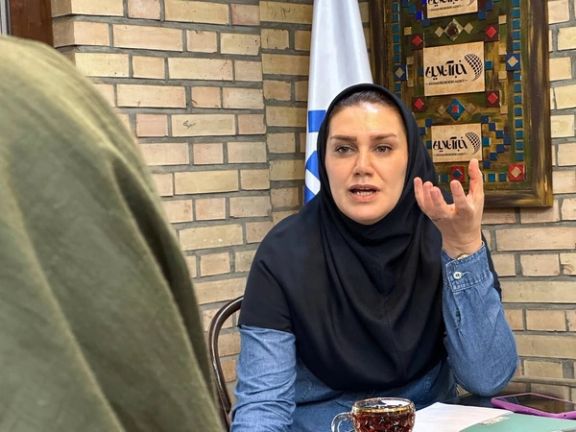
To compensate for the lost staff caused by the “purge”, the Education Ministry integrated religious teachers into the school system. Under a program called “Amin”, they recruited 21,000 seminary graduates to teach in 7 thousand schools. Ministers in President Ebrahim Raisi's administration have praised the "revolutionary" nature of the education ministry. In September, it was reported that Iran's Minister of Education had replaced over 20,000 principals.
The presence of religious teachers as part of the "Amin" program has become common at schools, however, students have a “negative attitude toward them and also they have a negative attitude towards students,” Malekzadeh explained.
In addition, the Education Ministry announced in December that seminary-affiliated schools will be established as part of the ministry's "Mosque, School, and Home" initiative.
In October, Russian President Vladimir Putin announced his intention to open Russian schools in Iran, though questions remain as to the nature of the proposed curriculums and their place in Iran's evermore religious Islamic curriculum.
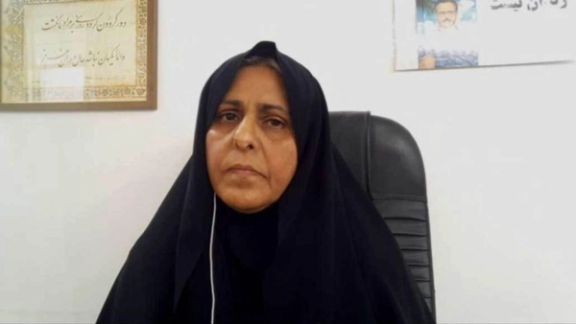
Fatemeh Sepehri, a political prisoner at Vakilabad Prison in Mashhad, is reportedly in critical condition, according to her lawyer, Khosrow Ali-Kordi.
Ali-Kordi warned, "Due to an elevated heart rate, my client can hardly speak, and her respiratory condition is a serious concern."
In a social media video, Sepehri's brother, Asghar Sepehri, revealed, "In Tuesday's meeting, my sister's heart rate was so high that speaking was difficult for her."
The family holds the Supreme Leader of the Islamic Republic responsible for the imprisonment of Sepehri, as emphasized by her mother in the video, stating that if anything happens to her, Ali Khamenei would be accountable.
Imprisoned since September 21, 2022 amid the Women, Life, Freedom protests, Sepehri faces severe charges, including "collaboration with hostile countries" resulting in a 10-year sentence, "conspiracy and collusion" leading to five years of imprisonment, "insulting the leadership" resulting in two years of imprisonment, and "propaganda against the system" leading to one year of imprisonment.
Despite a brief release in October 2022 for medical treatment, Sepehri was re-arrested three days later at her home in Mashhad by security forces.
She is the latest in a long line of prisoners such as rapper Toomaj Salehi and Nobel Laureate Narges Mohammadi, whose lives remain threatened in the confines of Iranian prisons.
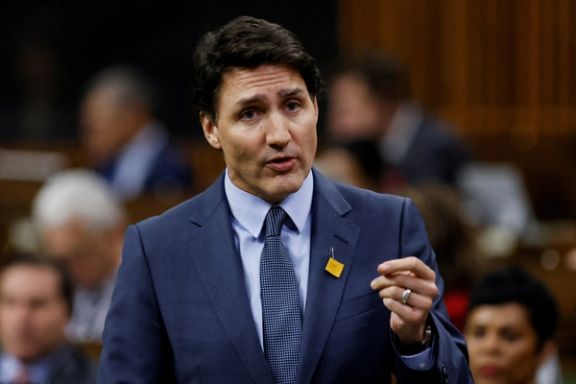
Canadian Prime Minister Justin Trudeau addressed concerns about the impact of Iran's Revolutionary Guard Corps (IRGC) during a speech on Wednesday.
While he refrained from directly answering Iranian journalist Negar Mojtahedi's questions whether Canada would consider listing the IRGC as a terrorist entity, Trudeau emphasized the government's commitment to monitoring and taking responsible measures against the IRGC's influence.
In response to questions regarding the more than 700 Iranian regime-linked individuals reportedly living freely in Canada, Trudeau stated, "We continue to watch and make sure that we're able to do everything we can that is responsible against the impact of the IRGC." However, he did not explicitly commit to designating the IRGC as a terrorist organization.
Trudeau asserted that Canada would persist in holding the Iranian regime accountable, limiting its global impact, and protecting Canadians. He highlighted the ongoing efforts of security services and police agencies to ensure the safety of Canadians.
The Prime Minister's remarks come against the backdrop of increased scrutiny on the IRGC following the downing of the PS752 Ukrainian passenger airliner in January 2020, resulting in the loss of Canadian lives. Despite calls from the Iranian Canadian community, Trudeau has not committed to labeling the IRGC as a terrorist group, citing factors such as mandatory military service that compel some Iranians to join the organization.
Critics argue that existing measures, including expanded sanctions and amendments to the Magnitsky legislation, are insufficient to address the issue of regime-connected officials residing in Canada. The debate surrounding the designation of the IRGC continues, with members of the diaspora expressing concerns about accountability for crimes committed abroad by those holding Canadian citizenship.